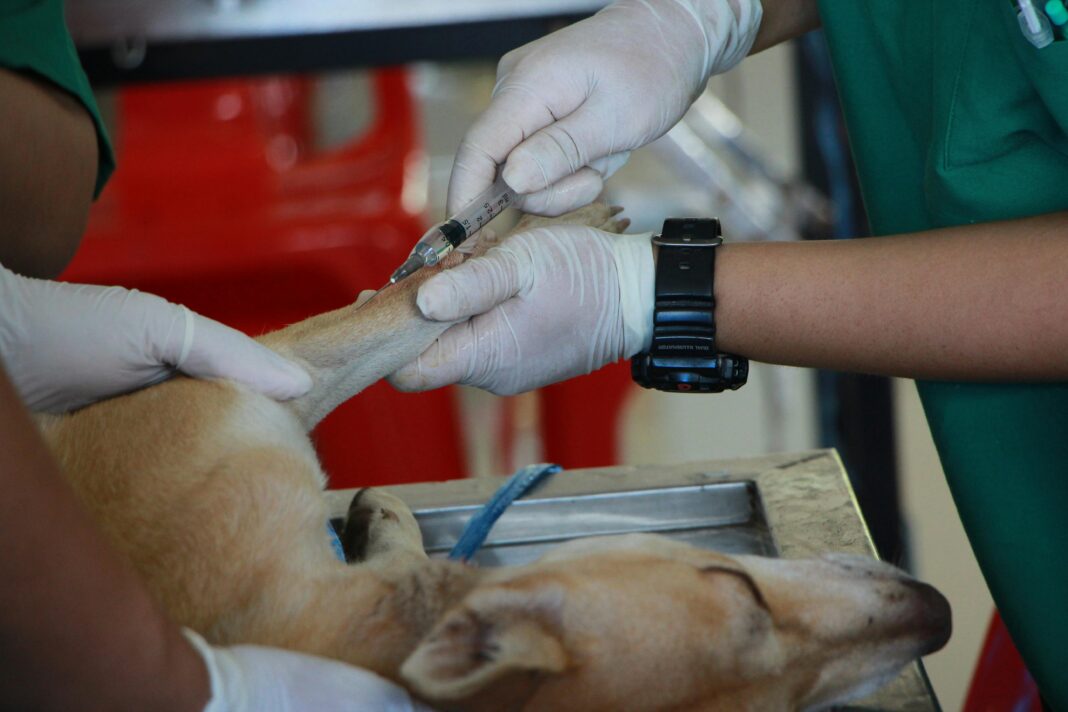Vaccinations play a crucial role in keeping your dog healthy and preventing avoidable diseases. Understanding the essential dog vaccination schedule is vital for every pet owner. This guide will walk you through the types of vaccinations, the recommended schedule, and why each vaccine is essential for your furry friend’s health.
Understanding Vaccines
Vaccines are biologics that help protect your dog against specific infectious diseases. They work by stimulating the immune system to recognize and fight off pathogens. By following appropriate vaccination schedules, you can give your dog a robust defense against various illnesses.
Core Vaccines
Core vaccines are those that are universally recommended for all dogs. They protect against the most serious and common diseases. Here’s a breakdown of the core vaccines:
-
- Distemper
-
- Parvovirus
-
- Adenovirus (Canine Hepatitis)
-
- Rabies
Distemper
Causes: Canine distemper is caused by a virus that affects the respiratory, gastrointestinal, and central nervous systems.
Symptoms: Symptoms include fever, coughing, vomiting, diarrhea, and neurological signs such as seizures.
Prevention: Vaccination is vital, typically given in a combination vaccine (DHP).
Parvovirus
Causes: Canine parvovirus is a highly contagious virus that attacks a dog’s intestinal lining.
Symptoms: Symptoms include severe vomiting, bloody diarrhea, lethargy, and loss of appetite.
Prevention: Vaccination usually starts at 6-8 weeks of age.
Adenovirus (Canine Hepatitis)
Causes: This viral infection affects the liver, kidneys, and eyes.
Symptoms: Symptoms range from fever and abdominal pain to more severe signs like jaundice.
Prevention: Included in the DHP combination vaccine.
Rabies
Causes: Rabies is a viral disease that affects the nervous system and is almost always fatal.
Symptoms: Behavioral changes, paralysis, and eventual coma are common.
Prevention: Vaccination is crucial, and it is a legal requirement in many areas.
Non-Core Vaccines
While core vaccines are critical, non-core vaccines are given based on the dog’s lifestyle and risk factors. These might include:
-
- Bordetella (Kennel Cough)
-
- Lyme Disease
-
- Leptospirosis
Bordetella
Causes: Bordetella bronchiseptica bacteria cause kennel cough.
Symptoms: A persistent dry cough is the primary symptom.
Prevention: Recommended for dogs that frequently interact with others in grooming or boarding settings.
Lyme Disease
Causes: This tick-borne disease can lead to serious health issues.
Symptoms: Fever, lethargy, joint pain, and swelling.
Prevention: Particularly important for dogs in areas with high tick populations.
Leptospirosis
Causes: Caused by bacteria found in contaminated water or soil.
Symptoms: Vary widely but may include fever, vomiting, and kidney failure.
Prevention: Recommended for dogs that may be exposed through swimming or in rural areas.
Recommended Vaccination Schedule
Establishing a vaccination schedule is critical for ensuring your dog’s health. Here’s a general guideline, but always consult your veterinarian to tailor it to your dog’s needs.
Puppy Vaccination Schedule
-
- 6-8 Weeks: DA2P (Distemper, Adenovirus, Parvovirus), Bordetella (if needed)
-
- 10-12 Weeks: DA2P, Leptospirosis (if needed)
-
- 12-16 Weeks: DA2P, Rabies, Bordetella (if needed)
-
- 16-18 Weeks: Final DHPP booster
Adult Vaccination Schedule
-
- 1 Year: DA2P, Rabies, Bordetella (if needed)
-
- Every 1-3 Years: DA2P, Rabies (depending on local regulations), and any additional vaccinations based on lifestyle and risk factors.
Benefits of Vaccination
Vaccinations provide several benefits:
-
- Prevent Disease: The most obvious benefit is the prevention of serious illnesses.
-
- Community Health: Vaccinating your dog helps protect not only your pet but also the broader dog population.
-
- Cost-Effective: Preventing illnesses through vaccination is often less expensive than treating them.
Practical Tips for Pet Owners
-
- Work with Your Veterinarian: Regular check-ups are key. Your veterinarian will help you create a personalized vaccination schedule.
-
- Keep Records: Maintain a detailed record of all vaccinations, dates, and any side effects.
-
- Monitor for Side Effects: While vaccines are generally safe, some dogs may experience mild side effects like lethargy or swelling at the injection site. Consult your vet if symptoms persist.
-
- Stay Informed: Research and stay updated on new vaccines or diseases that may be relevant to your dog’s lifestyle.
Final Thoughts
Being informed about your dog’s vaccination schedule is an essential part of responsible pet ownership. By adhering to core and non-core vaccinations based on your dog’s needs, you can help ensure a long, healthy life for your furry friend. Regular veterinary check-ups and open communication with your vet will help you navigate your dog’s health care effectively.





